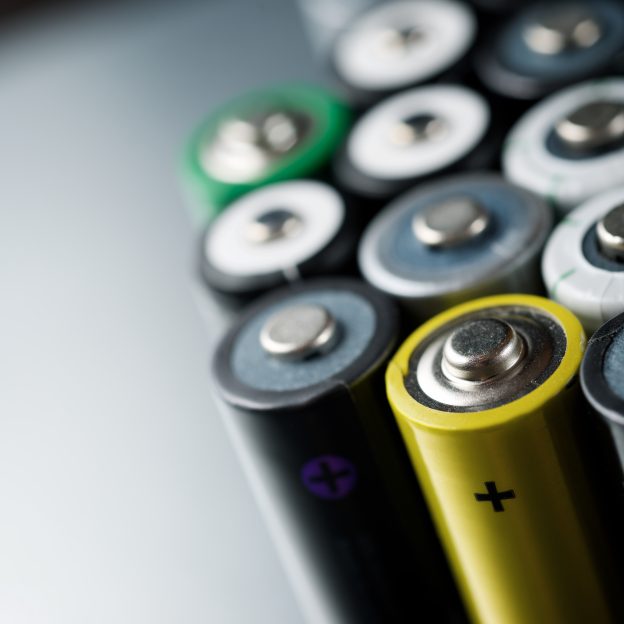 |
German multinational Daimler has announced that it is restructuring of its energy storage business and will stop selling energy storage systems under the brand Mercedes-Benz Energy in the US by the end of this April. Daimler established Mercedes-Benz Energy Americas in 2016 as a supporting business unit that turns second-life electric vehicle (EV) batteries into energy storage equipment for the residential market. Early on, Daimler believed that entering the energy storage market is complementary to the company’s efforts in developing EVs. This idea is also popular among the other major car makers because they view that EV batteries are a resource that the future smart grid can use. Tesla, as the upstart competitor to the established players in the automotive industry, has adopted this two-pronged strategy of manufacturing EVs and stationary energy storage units.
Nevertheless, Daimler over the past year has been mainly testing the waters of the energy storage market. With results being below expectations, Daimler therefore has decided to shut down Mercedes-Benz Energy Americas and stop selling residential energy storage systems in the US market.
Tesla made a huge splash in the residential energy storage market with the launch of its Powerwall series in 2015. However, the primary motive behind introducing the Powerwall was more about increasing brand exposure through clever marketing rather than dominating the market in terms of shipments. Still, Tesla’s presence in the energy storage market has compelled other companies to mount a challenge in this field. Daimler first established Mercedes-Benz Energy GmBH in April 2016 and Mercedes-Benz Energy Americas LLC in November of the same year. These subsidiaries respectively take on Tesla and Germany’s Sonnen, a distributed generation (DG) company that also provides energy storage solutions.
Daimler entered the US residential energy storage market in the early 2017 and recruited Boris von Bormann, former chief of Sonne’s US operation, as the CEO of Mercedes-Benz Energy Americas. Soon, Mercedes-Benz Energy of Americas was working with Vivint Solar, a local specialist in installation and maintenance of rooftop solar systems to quickly expand into the energy storage market. Daimler initially expected that Bormann with his three years of experience in the US can be useful in the struggle against Tesla and its Powerwall. Daimler was also very optimistic that it can fulfill its ambition of quickly becoming a leader in the growing energy storage market because of its brand recognition, global market connections, and integrated supply chain.
After a year and half, however, Bormann has left Mercedes Energy Americas as the company failed to crack open the US energy storage market. Daimler also decided to shut down the US subsidiary and transfer its workers to other sections of the company.
The main hurdle that Daimler could not overcome when developing its energy storage business is the cost. While Daimler had ample supply of EV batteries that can be modified to become energy storage equipment, the end products are not competitive due to having too high specifications. Unlike the conventional batteries used in most residential energy storage systems, EV batteries have high energy density so that they can instantly discharge a lot of power to propel vehicles. Furthermore, EV batteries are designed to operate reliably in various outdoor and traffic conditions, including in extremely cold temperatures. Residential energy storage equipment, on the other hand, is stationary and focuses instead on features such as safety and lifespan. Tesla, too, is facing the same cost hurdle. The price of its second-generation Powerwall was raised to US$5,900 this April, a US$400 hike from US$5,500 a year and half ago.
Since EV batteries and standalone storage batteries are basically different from each other in terms of specification requirements, they also have different compositions despite both belonging to the general category of lithium-ion batteries. EV makers tend to choose nickel-manganese-cobalt as the cathode, whereas energy storage suppliers generally use lithium-ferrous-phosphate for cathode. The latter material is prevalent in products offered by Sonnen and SimpliPhi Power.
On the whole, lithium batteries for different applications have their own designs, material compositions, and even methods of optimization and maintenance. Sonnen, for instance, has stated that its products have built-in intelligent management technologies for minimizing degradation. Consequently, Sonnen’s products can surpass their main competitions in terms of the overall lifespan and attain a long-term cost advantage.
Additionally, the uses of residential energy storage systems differ by region. Equipment fit well in the homes of Europe may not perform up to par in the homes of the US. Compared with their German counterparts, American households consume more electricity on average. While German consumers buy energy storage systems mainly to complement the rooftop solar panels that they have already installed, American consumers use their energy storage systems in a variety of ways. They can use residential energy storage systems to avoid consuming grid electricity during the peak load period. They can also use them to build an independent micro-grid. Furthermore, energy storage systems in the US sometimes offer demand response services.
To satisfy the various needs of American customers, Mercedes-Benz Energy has made expensive changes to components such as the inverter, connecting interface, and management software. The SMA inverters that Mercedes-Benz Energy initially had chosen for their energy storage systems had to be replaced several times. Eventually, Schneider Electric became the inverter supplier for the products sold in the US market.
Daimler’s exit from the US energy storage market dispels the notion that EV makers can easily cross into other application markets related to batteries. Still, Daimler has stated that the US venture was worthwhile despite facing numerous unexpected challenges. Going forward, Daimler will continue to work on energy storage systems, particularly utility-scale solutions for Germany. The company will also continue to aggressively expand into the EV market. According to Daimler’s long-term forecast, the EV market after a period of growth will produce enough used batteries that can be modified to become more advanced energy storage solutions. As for residential home energy storage, this market is more suited for DG developers such as Sonnen.
(This article is an English translation of news content provided by EnergyTrend’s media partner TechNews. The credit of the photo goes to Daimler.)







